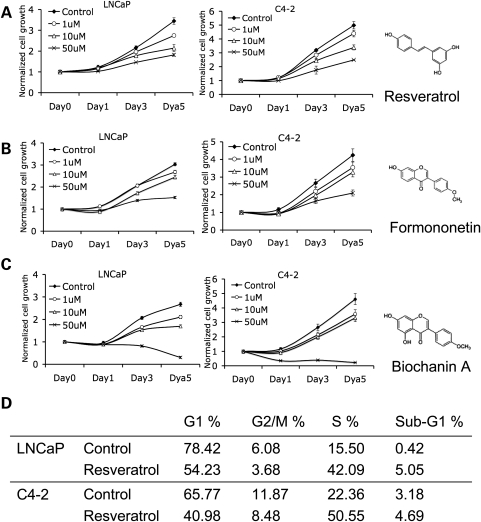Figure 1.
Resveratrol inhibits prostate cancer cell proliferation. (A) Effect of resveratrol on LNCaP (left panel) and C4-2 (right panel) cell proliferation. Fifteen thousand cells were plated in each of 24-well plates in complete medium (FBS) and treated with DMSO (control) or different concentrations of resveratrol. Growth rates of the cells were assessed by MTT assay over a period of 5 days. Each growth-data point represents a mean value of three experiments and the error bars indicate the standard deviation, unless otherwise indicated. A Jonckheere–Terpstra trend test was performed to evaluate alternatives of ordered class differences by dose concentrations (P < 0.001). All statistical tests were two sided. Both cell lines show growth inhibition in response to increasing resveratrol doses. (B) Effect of Formononetin (P < 0.01) and (C) Biochanin A (P < 0.001) on LNCaP and C4-2 cell growth rates as assessed by the MTT assay. Molecular structures of the three phytoestrogens are shown as inserts on the right of the growth curves. (D) Flow cytometric analysis of the effects of resveratrol on proliferation and apoptosis (sub-G1). LNCaP and C4-2 cells were treated with 25 µm resveratrol for 48 h, ethanol-fixed, stained with propidium iodide and subjected to flow cytometry. The fraction of cells in the different phases of the cell cycle and those undergoing apoptosis was measured as described.

